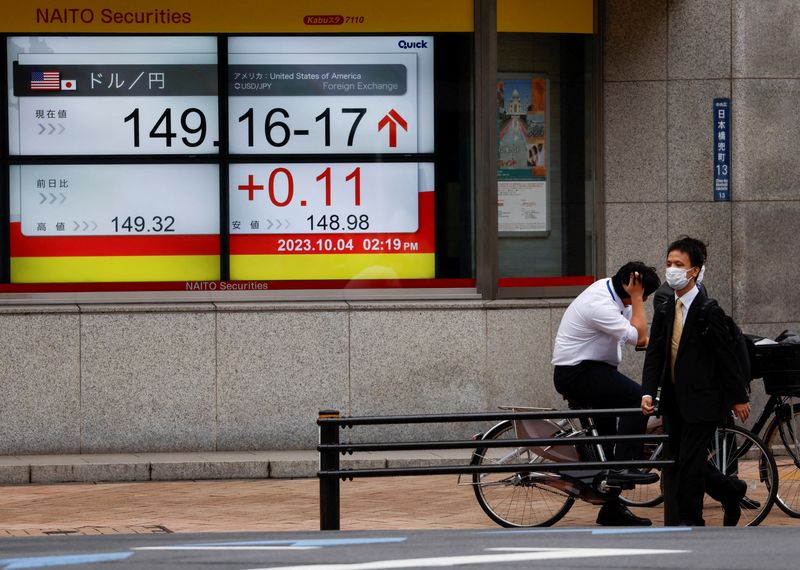By Jamie McGeever
(Reuters) - A look at the day ahead in Asian markets.
Interest rate decisions and guidance from New Zealand and Thailand, and inflation figures from Australia will be the main events for Asian markets on Wednesday, as a curiously directionless week for risk assets reaches the midway point.
While emerging market and Asian equities clocked up decent gains on Tuesday, Wall Street struggled to make much headway despite a seemingly constructive market and economic backdrop.
The dollar, Treasury yields, and stock market volatility all fell, and U.S. consumer confidence was higher than expected. Fed Governor Christopher Waller - thought to be close to Fed Chair Jerome Powell's thinking on policy - also signaled that U.S. interest rates could be cut in the months ahead.
The dollar and two-year Treasury yield slid to fresh three-month lows, the 10-year yield hit a two-month low and the VIX volatility index fell back to recent lows last seen before the pandemic. Yet the S&P 500 and Nasdaq ended flat.
Perhaps that broad loosening of financial conditions will give Asian markets a bigger boost on Wednesday, although the underperformance of Chinese stocks shows little sign of abating even as the central bank chief pledged to keep monetary policy "accommodative" to provide support to the economy."
The first of the main policy events in the region on Wednesday will be the Reserve Bank of New Zealand's policy decision. It is widely expected to hold the cash rate at 5.50%, so investors' interest will lie more in the bank's guidance.
Traders expect up to 50 basis points of easing next year, with the first cut coming in July. That's about half of what the Fed is expected to do, so it's no wonder the New Zealand dollar is outperforming - it is up 6.5% in the past month.
Thailand's central bank is also expected to keep rates on hold, at 2.50%, through the middle of 2025. Disappointing third quarter growth and the exchange rate's 7% appreciation over the last month will have eased any lingering pressure on policymakers to raise rates again.
Finally, figures from Australia are expected to show that price pressures cooled in October, with the annual rate of weighted consumer inflation slowing to 5.20% from 5.60%.
Reserve Bank of Australia Governor Michele Bullock on Tuesday reaffirmed that monetary policy was restrictive and working to dampen demand, though inflation in the service sector was proving sticker than hoped.
The RBA is expected to keep its cash rate on hold at 4.35% next week, although there is around a 10% chance of a quarter point hike, according to futures market pricing.
Here are key developments that could provide more direction to markets on Wednesday:
- New Zealand interest rate decision

- Thailand interest rate decision
- Australia inflation
(By Jamie McGeever; Editing by)